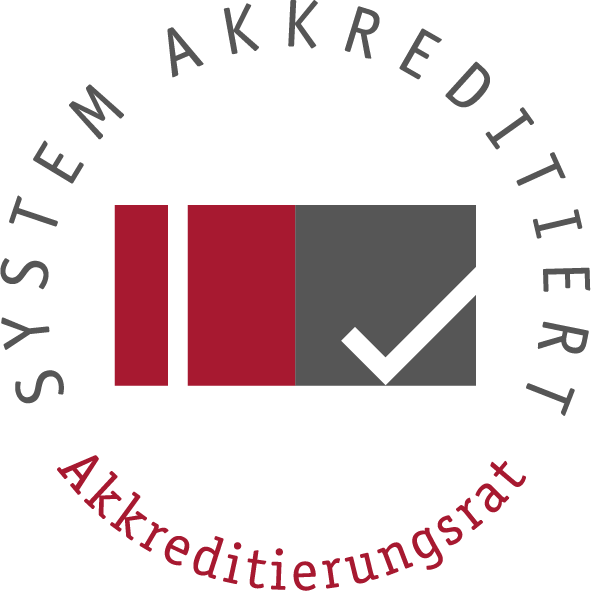Microtechnology and Nanostructures (M.Sc.)
Auslaufender Studiengang
The Master's programme "Microtechnology and Nanostructures" at Saarland University offers students a productive combination of the knowledge-driven perspective of physics with the application-oriented approach of the engineering sciences. The focus of the programme is on miniaturization. With its combination of nanostructure physics and microsystems engineering, the M.Sc. course in Saarbrücken is unique in Germany.
Please note: This study programme is being phased out. You can no longer apply. However, you can apply for the follow-up course of study 'Quantum Engineering'.
The broad, interdisciplinary, research-focused curriculum also offers scope for students to pursue areas of interest in a field ranging from the engineering perspective of microsystems technology to the physics of nanotechnology. As the M.Sc. programme is part of "Nano-Bio-Med", one of the three major research themes at Saarland University, students on the Master's degree programme "Microtechnology and Nanostructures" enjoy an excellent study and research environment.
Students take taught courses in the core areas "Physics" and "Microsystems Engineering" and can extend and consolidate their knowledge by choosing specialist compulsory elective modules, lab courses and practical training from the wide range of modules on offer. General elective modules are also offered that provide additional opportunities for students to strengthen their theoretical knowledge and practical skills in technical areas and to acquire additional interdisciplinary academic skills in such fields as business and economics or language proficiency. Students can also gain academic credits by working as university teaching or tutorial assistants or by completing an extended practical work-experience phase. A laboratory project and accompanying project seminar serve to equip students with the skills needed to complete the final-year Master's research project that is carried out in close cooperation with one of the departmental research groups.
Graduates from the M.Sc. programme "Microtechnology and Nanostructures" have a wide range of career options. They can choose to carry out research either in academia (by joining a doctoral research programme) or in industry. Equally, the rapidly growing markets in microengineering and nanotechnology offer graduates opportunities to work in manufacturing and development, in measurement, testing and instrumentation, or in quality assurance in such diverse fields as medical technology and engineering, the automotive industry, the aviation and aerospace industries or in communications technology.
Der forschungsorientierte Masterstudiengang "Mikrotechnologie und Nanostrukturen" umfasst insgesamt 120 CP. Davon entfallen 15 CP auf ein Laborprojekt, das der Einarbeitung in eine wissenschaftliche Fragestellung dient, und 30 CP auf die abschließende Masterarbeit. Die Bearbeitungszeit der Masterarbeit einschließlich des Masterkolloquiums umfasst sechs Monate. Die zu belegenden Module gliedern sich in die Kategorien "Kernbereich Physik" und "Kernbereich Mikrosystemtechnik", "Fachspezifische Wahlpflicht", "Fachspezifische Praktika", "Allgemeine Wahlpflicht", "Laborprojekt" und "Masterarbeit".
Im Masterstudium werden die Kenntnisse durch Vertiefungsveranstaltungen aus den Bereichen Physik und Mikrosystemtechnik gezielt erweitert, wobei hier bereits erste Wahlmöglichkeiten gegeben sind. Die individuelle fachliche Orientierung erfolgt durch Auswahl weiterer fachspezifischer Wahlpflichtfächer sowie durch Labor- und/oder Projektpraktika aus gemeinsamen Katalogen der Fachrichtungen Physik und Systems Engineering.
Allgemeine Wahlfächer dienen, je nach individueller Neigung, der weiteren Spezialisierung bzw. dem Aufbau fachübergreifender wissenschaftlicher Kompetenzen. Neben Lehrveranstaltungen aus einem weiten Fächerspektrum sind hier auch die Tätigkeit als Tutor an der Universität oder eine berufspraktische Tätigkeit in Industrie oder außeruniversitärer Forschungseinrichtung vorgesehen.
Ein Laborprojekt zur Hinführung auf die Masterabschlussarbeit und die Masterarbeit selbst vermitteln die Fähigkeit zum eigenständigen wissenschaftlichen Arbeiten. Durch die intensive Einbindung in eine Arbeitsgruppe in dieser Phase des Studiums werden den Studierenden zusätzlich Teamfähigkeit und Kommunikationsfähigkeit vermittelt.
| Standard period of study | 4 semesters |
| Language of instruction | German |
| German language requirements | Sufficient language skills for specialized studies |
| Tuition fees | Not applicable |
| Semester fee | See current fee structure |
| Web page | Subject area Physics Subject area Systems Engineering |
Course adviser
Andreas Schütze
Department of Mechatronics
Saarbrücken Campus
Building A5 1, Room 2.33
Phone: +49 681 302-4663
schuetze(at)lmt.uni-saarland.de
www.lmt.uni-saarland.de
Uwe Hartmann
Department of Physics
Saarbrücken Campus
Building C6 3, Room 4.01
Phone: +49 681 302-3798
u.hartmann(at)mx.uni-saarland.de
www.uni-saarland.de/fak7/hartmann
Carine Klap
Saarbrücken Campus
Building A5 1, Room 0.03
Phone: +49 681 302-4946
studium-se(at)uni-saarland.de
Central Student Advisory Service
Saarbrücken Campus
Building A4 4, Ground floor
Phone: +49 681 302-3513
studienberatung(at)uni-saarland.de
Central Student Advisory Service

Accredited study programmes
Saarland University was one of the first universities in Germany to achieve Quality Assurance Accreditation and has held the Accreditation Council's official quality mark continuously since 2012.
Quality management
